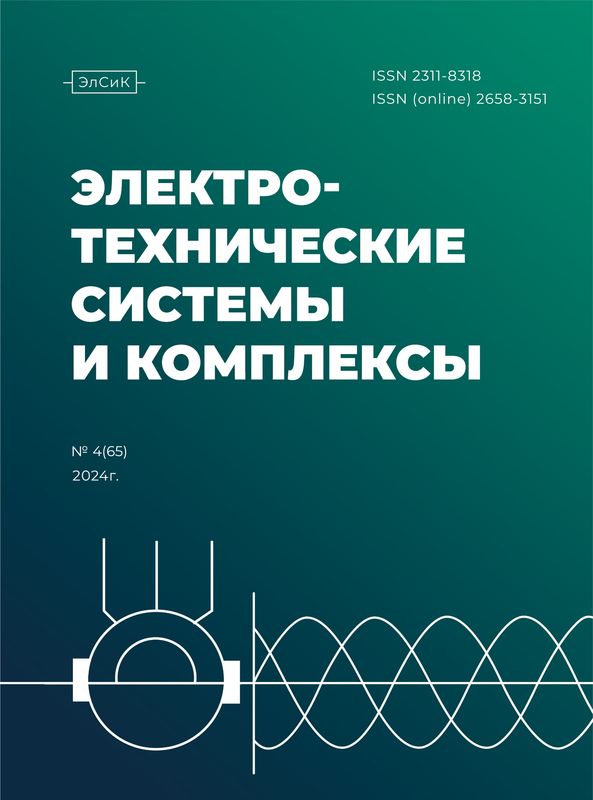Abstract
The conditions of work in energy retail companies in the wholesale electricity market set rigid requirements for accuracy of forecasts on the basis of which certain amounts of electricity are purchased. Inaccurate forecasts lead to financial losses in the company and reduce economic indicators. The urgent task of energy retail companies is the development of a mathematical model for energy consumption volumes forecasting to get forecasts with a prescribed accuracy. To solve this task in the article the statistical methods used in industry companies are explored and the factors influencing energy consumption in the region are researched. To make a forecast electricity consumption volumes of one of the region's energy retail companies in 2013 are used as inputs. The forecast error should be less than 3% at the request of the company. The short-term forecasting performed by regression analysis method and principal components method taking into account the selected factors is done in the research work. It is proved that the principal components method is more effective for predicting the electricity consumption volumes in the energy retail company. The results of forecast using the principal components method have an error of less than 3%.
Keywords
Regression analysis, principal components method, forecasting of electricity consumption.
1. Federal portal PORTOWN. RU. Energoeffektivnost Rossii [Energy efficiency of Russia]. URL: http:// www.protown.ru/information/hide/7938.html
2. Sudnova V.V., Jakimov V.V. Povyshenie kachestva planirovanija elektropotreblenija na osnove statisticheskogo analiza [Planning quality improvement of energy consumption on the basis of static analysis]. Elektrichestvo [Electricity]. 1992, no. 5, pp.12 – 16.
3. Belan A.V., Gordeev V.I., Demura A.V., Nadtoka I.I. Puti i rezultaty sovershenstvovanija metodov prognozirovanija elektropotreblenija [Ways and results of improvement of energy consumption forecasting methods]. Promishlennaya energetic [Industrial power engineering]. 1993, no. 9–10, pp. 23- 26.
4. Ajvazjan S.A., Mhitarjan V.S. Prikladnaja statistika i osnovy ekonometriki [Applied statistics and fundamentals of econometrics]. Moscow: Unity, 1998, 1022 p.
5. Shuckij V.I., Kuznetsov E.A., Tokareva N.M., Fishhuk S.A. Analiz i prognozirovanie energopotreblenija v Murmanskoj oblasti [Analysis and forecasting of energy consumption in Murmansk region]. Promishlennaya energetic [Industrial power engineering]. 1998, no.10, pp. 5-9.
6. Bortsov Ju.A., Poljahov N. D., Prihodko I.A., Anushina E.S. Ispolzovanie sovremennyh podhodov i metodov dlja prognozirovanija elektropotreblenija [Application of advanced approaches and methods of energy consumption forecasting]. Elektrotekhnika [Electrical power engineering]. 2006, no.8, pp.30-35.
7. Kudrin B.I. Metodika obespechenija pochasovogo prognozirovanija elektropotreblenija predprijatij s uchetom pogodnyh faktorov [Method of hourly forecast of enterprise power consumption taking into account weather conditions]. Vestnik MEI [Bulletin of MPEI]. 2007, no.2, pp.105-108.
8. Nikiforov G.V. Sovershenstvovanie normirovanija i planirovanija elektropotreblenija v promyshlennom proizvodstve [Improvement of power consumption control and planning in industrial production]. Industrial power engineering, 1999, no 3, pp.27-29.
9. Nikiforov G. V. [Analiz ustojchivosti regressionnyh modelej elektropotreblenija] Analysis of stability for regression models of energy consumption. Promishlennaya energetic [Industrial power engineering]. 1999, no.12, pp.18-20.
10. Voronov I.V., Poletov Ye.A., Yeremenko V.M. Opredelenie parametrov, vlijajushhih na elektropotreblenie promyshlennogo predprijatija s pomoschju metoda ekspertnyh otsenok [Determination of parameters influencing power consumption of industrial enterprises using expert evaluation method]. Vestnik KuzGTU [Bulletin of KuzGTU]. 2009, no.5, pp. 61-64.
11. Gracheva E.I., Saitbatalova R.S. Opredelenie rashoda elektrojenergii na osnove matematicheskoj modeli [Calculation of electric power consumption on the basis of mathematical model]. Promishlennaya energetic [Industrial power engineering]. 1999, no.4, pp. 24-25.










